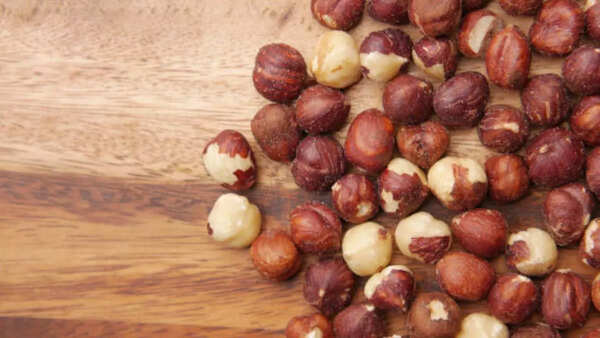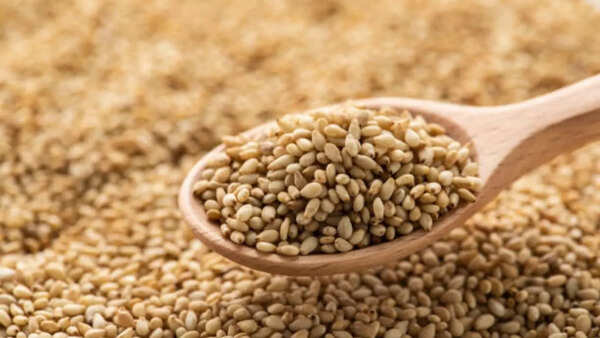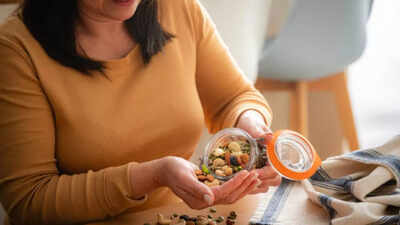Best nuts and seeds to lower colorectal cancer risk

Colorectal cancer, also known as bowel cancer, is a type of cancer that develops in the colon or rectum. According to the American Cancer Society, it starts as a growth on the inner lining of either place, coming to be known as polyps. Over time, the cancer cells spread across the lining to the blood or lymph vessels, from where they can move to other parts of the body.
According to the website, colorectal cancer is the third most common cancer type in both men and women in the United States, with an estimate of 107,320 new cases in 2025.
However, a recent study published in the National Library of Medicine analysed the role of nut and seed consumption in colorectal cancer. The results showcased the consumption of certain nuts and seeds can reduce the risk of colorectal cancer. Find out more about these miraculous nuts and seeds below!
Walnuts
According to a recent study published in Cancer Prevention Research from the UConn School of Medicine, the ellagitannins and polyphenol compounds in walnuts can help reduce the risk of colorectal cancer. The study was carried out on 39 patients between the ages of 40 and 65, where the participants were asked to avoid all ellagitannin-containing food to bring down their urolithin levels to zero and then begin eating ellagitannin-rich walnuts. It was found that the high levels of urolithin had reduced levels of many proteins found in polyps- which lead to colorectal cancer.
Peanuts

Image credits: iStock
The Nurses’ Healthy study analysed the risk of colorectal cancer in women in Taiwan to find out that the consumption of peanuts was associated with approximately a 58% reduction in the risk of colorectal cancer.
Pistachios

Image credits: iStock
Raw and roasted pistachios are rich in bioactive compounds such as B vitamins, polyphenols, and dietary fibre. According to a study published in the National Library of Medicine, their consumption can reduce the risk of colorectal cancer.
Hazelnuts

Image credits: iStock
Hazelnuts are another popular choice when it comes to colorectal cancer prevention. The Oregon hazelnut and Turkish hazelnut in particular have great prowess in preventing the growth of cancer cells. The reason for this was attributed to the presence of antitoxin and phenolic compounds present in these nuts, mentioned in a study published in the National Library of Medicine.
Flaxseeds

Image credits: iStock
When it comes to seeds, various healthy seeds such as flaxseeds, chia seeds, pumpkin seeds, sunflower seeds, and sesame seeds are effective in preventing colorectal cancer. The consumption of flaxseeds has been proven to reduce the risk and growth of colorectal cancer in humans and animals. Its major bioactive components such as fibre, alpha-linolenic acid, lignans and other phytochemicals show a decreased risk of colonic neoplasms and a regulation of cell growth, as proved in a study published in the National Library of Medicine.
Pumpkin seeds

Image credits: iStock
A study published in the National Library of Medicine examined the effect of pumpkin seed consumption in rats that have been induced with colon cancer. They were fed pumpkin seed extract and the condition of their colons was analysed. The results showed a significant decrease in the colon length/weight ratio, leading to the conclusion that pumpkin seeds can prevent the risk of colorectal cancer when consumed in dietary proportions.
Sesame seeds

Image credits: iStock
As per a study published in the same medical library, the bioactive compounds found in sesame seeds, such as sesamin, sesaminol, sesamol, and sesamolin, play a vital role in manifesting anticancer activities and antiproliferation effect against the cancer cells found in the lining of the colon or rectum.
Note: Ensure the consumption of these nuts and seeds in dietary proportions for effective results.
















